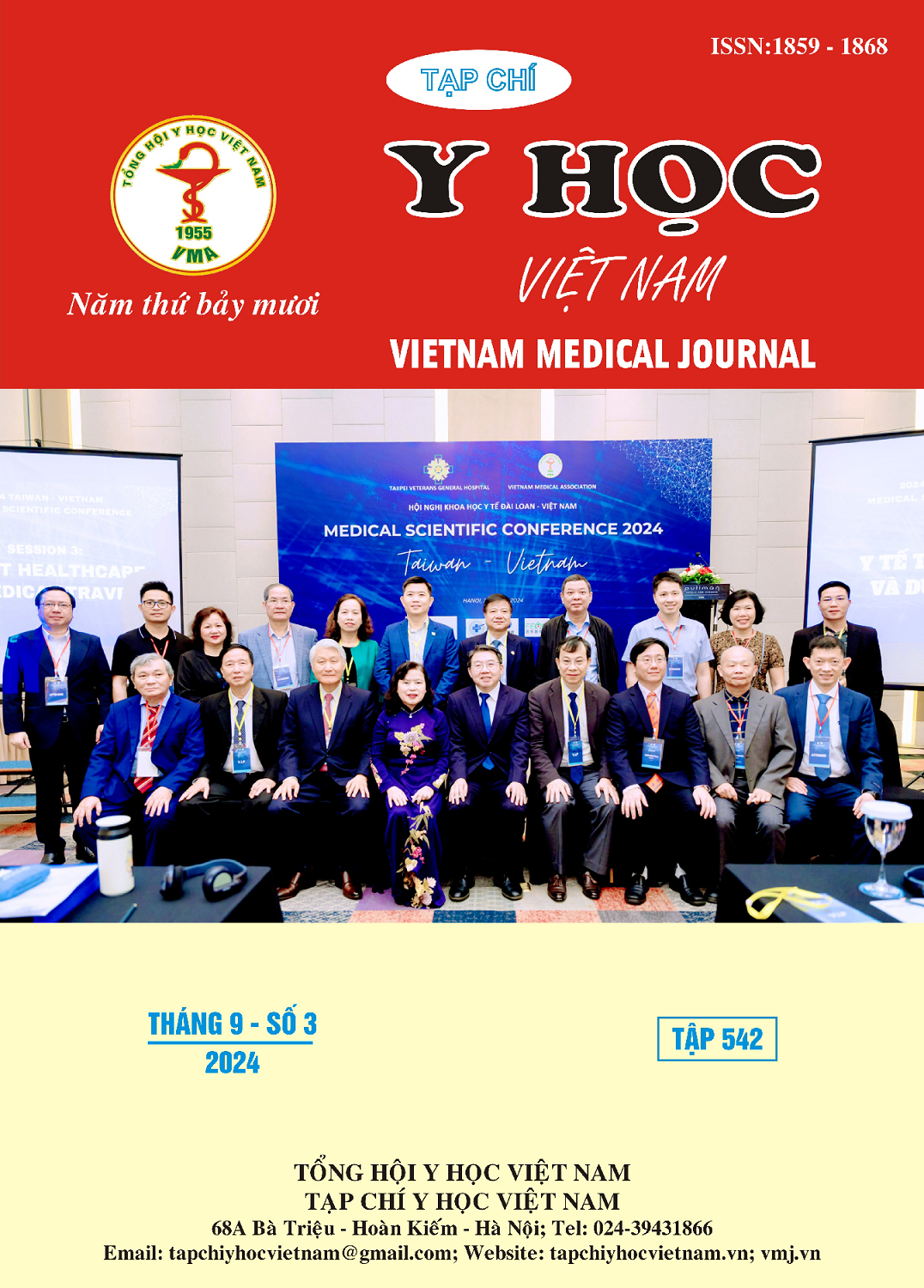EVALUATION OF INTERVENTION EFFECTIVENESS AND CHANGES IN REPRODUCTIVE HEALTH KNOWLEDGE AND PRACTICES AMONG FEMALE SECONDARY SCHOOL STUDENTS IN CAN THO CITY IN 2023
Main Article Content
Abstract
Background: Adolescent reproductive health care is a significant public health concern worldwide. Research Objective: To evaluate the changes in knowledge and practices regarding reproductive health care among female students after intervention, and to assess the effectiveness of intervention measures at secondary schools in Can Tho city in 2023. Subjects and Methods: A cross-sectional study was conducted post-intervention on 300 female students who had reached puberty at secondary schools in Can Tho city. The qualitative study involved 96 participants, including teachers, school health staff, parents, and female students. Data were collected through in-depth interviews and focus group discussions, then coded and analyzed using content analysis methods. Results: After 6 months of intervention, the percentage of female students with correct knowledge about the reproductive system and menstruation increased from 6.7% to 58.0% (p<0.001), correct knowledge about conception and gender increased from 53.8% to 75.0% (p<0.001), and knowledge about sexually transmitted infections and HIV/AIDS increased to 70% (p<0.001). The rate of correct reproductive health care practices increased from 50.4% to 76.4%. Feedback from teachers, parents, and students indicated that the intervention measures significantly improved knowledge and practices regarding reproductive health care. Conclusion: Health education interventions significantly improved the knowledge and practices of reproductive health care among female students at secondary schools in Can Tho City.
Article Details
Keywords
Reproductive health, intervention, female students, adolescents, Can Tho
References
2. Dương Thị Anh Đào và cộng sự (2019), “Nghiên cứu thực trạng hiểu biết về sức khoẻ sinh sản của học sinh THPT Tràng Định, huyện Tràng Định, tỉnh Lạng Sơn”, Tạp chí Khoa học tự nhiên, 64(3), trang 149-156. DOI: 10.18173/2354-1059.2019-0018.
3. Nguyễn Ngọc Nghĩa và cộng sự (2023), “Kiến thức và thực hành về sức khỏe sinh sản vị thành niên ở học sinh trường THPT Lý Thường Kiệt, thành phố Yên Bái”, Tạp chí Y học Việt Nam, 535(2), trang 287-291.
4. Patton GC, Sawyer SM, Santelli JS, et al (2016), Our future: a Lancet commission on adolescent health and wellbeing. Lancet. 2016 Jun 11;387(10036):2423-78. doi: 10.1016/S0140-6736(16)00579-1. PMID: 27174304; PMCID: PMC5832967.
5. American College of Obstetricians and Gynecologists (ACOG) (2018), Dysmenorrhea: Painful periods. Retrieved from ACOG website
6. Lê Văn Hiền (2017), “Yếu tố liên quan đến hiệu quả can thiệp giáo dục tình dục an toàn cho học sinh Trung học phổ thông tại thành phố Hồ Chí Minh”, Chuyên đề Sức khỏe sinh sản (Thời sự Y học), 17 (1), tr. 30-37.
7. Lưu Thị Kim Oanh (2017), Hiệu quả can thiệp thay đổi kiến thức, thái độ, thực hành phòng chống nhiễm khuẩn đường sinh sản ở học sinh tuổi vị thành niên tại Kim Bảng, Hà Nam, 2015 - 2016, Luận án Tiến sĩ Y tế công cộng, Viện Vệ sinh Dịch tễ Trung ương, Hà Nội.
8. Nguyễn Thúy Hà (2023), “Hiệu quả giải pháp can thiệp nâng cao chất lượng chăm sóc Sức khỏe sinh sản ở học sinh Trung học phổ thông Thành phố Thái Nguyên”, Tạp chí Y học Việt Nam, 531(2), trang 389-396.


